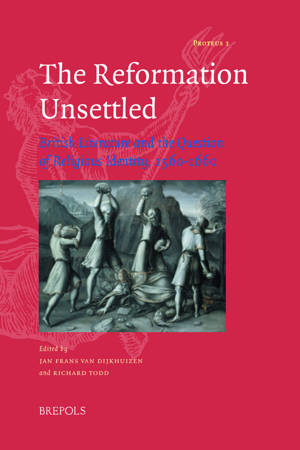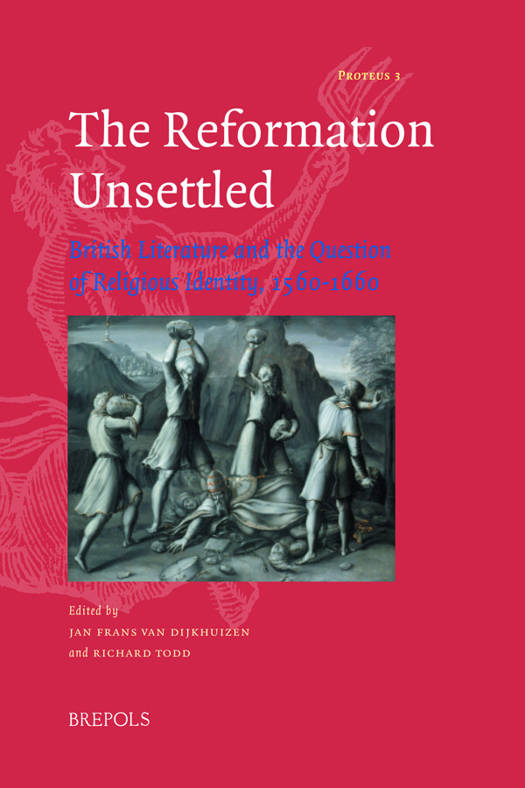
Je cadeautjes zeker op tijd in huis hebben voor de feestdagen? Kom langs in onze winkels en vind het perfecte geschenk!
- Afhalen na 1 uur in een winkel met voorraad
- Gratis thuislevering in België vanaf € 30
- Ruim aanbod met 7 miljoen producten
Je cadeautjes zeker op tijd in huis hebben voor de feestdagen? Kom langs in onze winkels en vind het perfecte geschenk!
- Afhalen na 1 uur in een winkel met voorraad
- Gratis thuislevering in België vanaf € 30
- Ruim aanbod met 7 miljoen producten
Zoeken
The Reformation Unsettled
British Literature and the Question of Religious Identity, 1560-1660
Jan Frans Van Dijkhuizen
€ 68,90
+ 137 punten
Omschrijving
Recent historical studies have emphasized that the English Reformation can no longer be seen as an inevitable response to abuses within the late-medieval Western ('Catholic') Church. Contrary to Protestant stereotypes, the late-medieval Church catered to the spiritual needs of its members. In addition, the English Reformation was an incomplete process and, even after the Elizabethan Settlement of 1559, English religious culture was full of continuities with the past, with pre-Reformation religious culture only partially displaced. This essay collection investigates how the literature of the first century after the Elizabethan Settlement dealt with this cultural ambivalence. Focusing on a mixture of canonical texts and less well-known ones, the contributors show that the religious hybridity of early-modern England is found in a concentrated form in the literary texts of the period. In contrast to theologians, literary writers were not obliged to choose sides. Literary discourse could confront incompatible doctrinal perspectives within a single text, or forge a hybrid spiritual sensibility out of the competing religious traditions. Literature, sometimes in spite of writers' avowed denominational allegiances, embraced, explored and deepened the ambivalence of early modern English religious culture in a manner unavailable in other kinds of texts.
Specificaties
Betrokkenen
- Auteur(s):
- Uitgeverij:
Inhoud
- Aantal bladzijden:
- 244
- Taal:
- Engels
- Reeks:
- Reeksnummer:
- nr. 3
Eigenschappen
- Productcode (EAN):
- 9782503526249
- Verschijningsdatum:
- 18/03/2009
- Uitvoering:
- Hardcover
- Formaat:
- Genaaid
- Afmetingen:
- 160 mm x 241 mm
- Gewicht:
- 589 g

Alleen bij Standaard Boekhandel
+ 137 punten op je klantenkaart van Standaard Boekhandel
Beoordelingen
We publiceren alleen reviews die voldoen aan de voorwaarden voor reviews. Bekijk onze voorwaarden voor reviews.









